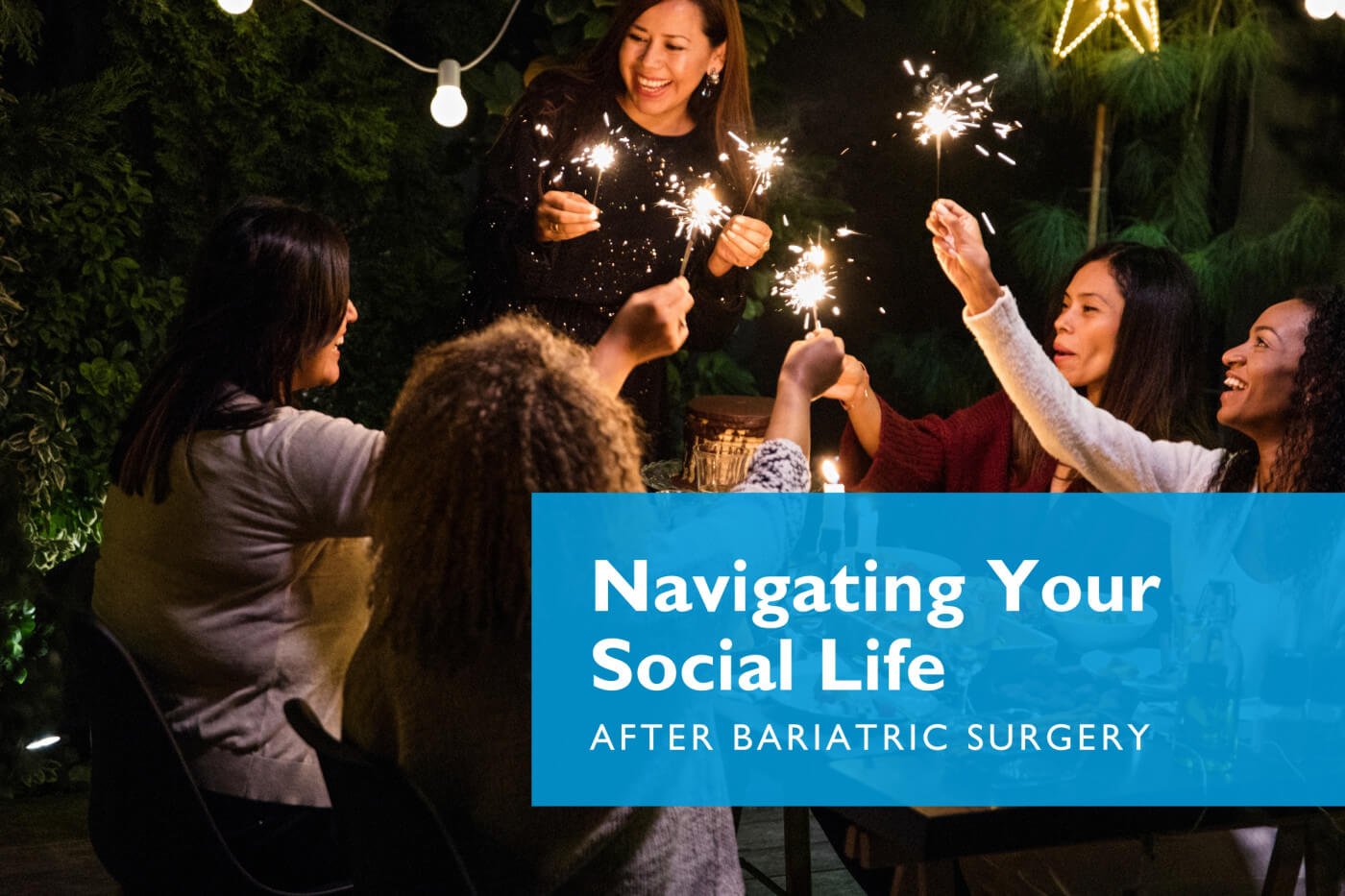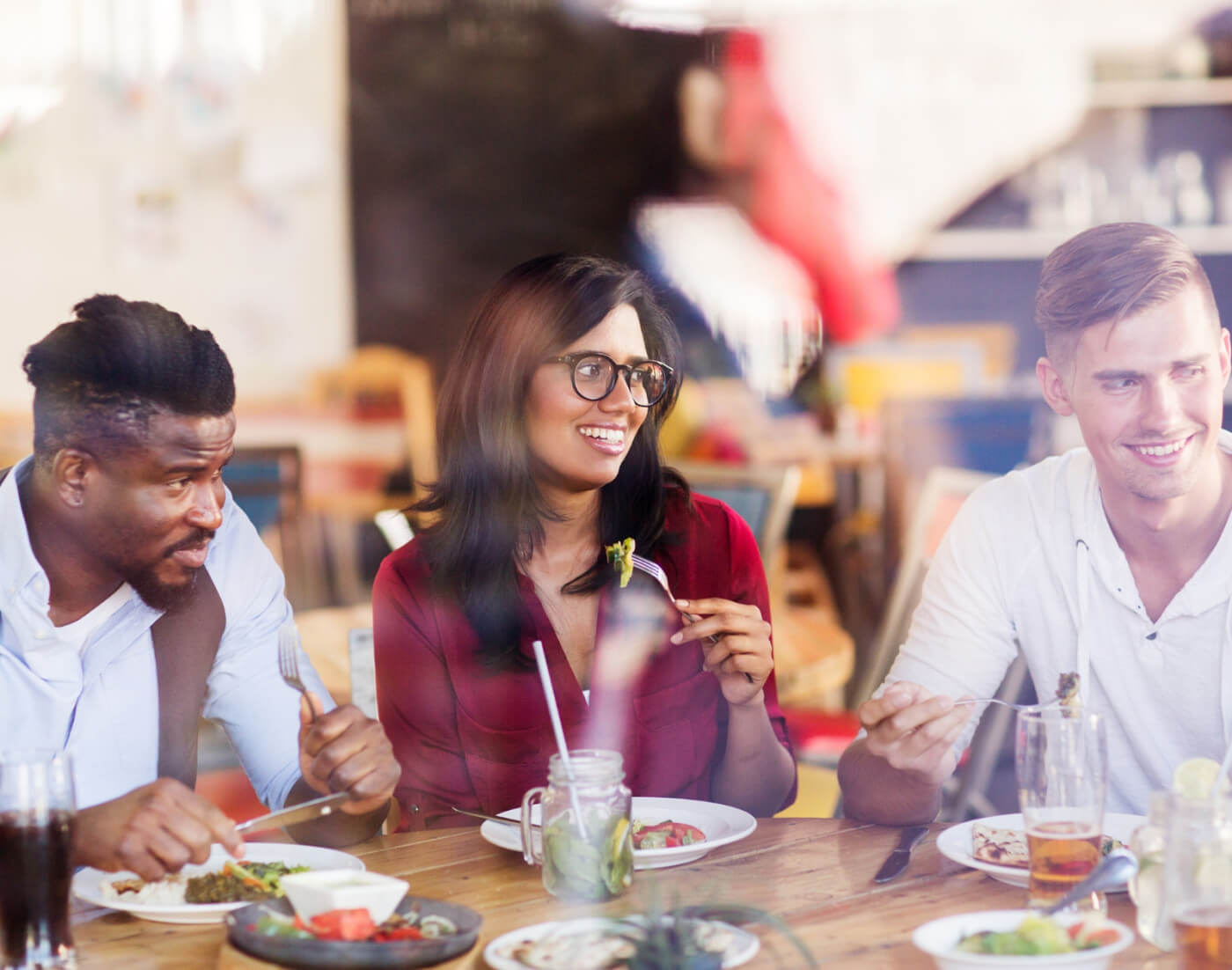Navigating Your Social Life After Bariatric Surgery
 Dr. Samantha Stavola-Giaconia DCN, RDN, LD, FAND
Lifestyle
Dr. Samantha Stavola-Giaconia DCN, RDN, LD, FAND
Lifestyle
February 9th, 2024
Bariatric surgery can be a life-changing journey, leading to significant weight loss and improved health. While the physical transformations are evident, the impact on your social life after bariatric surgery is equally profound. In this blog, we will explore the challenges individuals may face post-surgery and provide practical tips for managing social situations. We aim to offer valuable insights into leading a fulfilling social life after bariatric surgery.
Social Challenges Post-Bariatric Surgery
Post-bariatric surgery, individuals often encounter a myriad of social challenges that extend beyond the physical transformations they undergo. One of the significant hurdles is the need to navigate conversations around their weight loss surgery, dietary restrictions, and weight loss journey. Friends and family may inadvertently contribute to feelings of discomfort or isolation if they are not aware of the emotional and physical changes accompanying the surgical process. Consequently, individuals find themselves grappling with how to effectively communicate their experiences and set expectations for support from their social circles.
Communicating with Friends and Family
Effective communication is key to fostering understanding among friends and family members. It is important to have open conversations about the surgery and its implications. Acknowledge the changes you've undergone and share your expectations regarding support and understanding.
Dining Out and Social Gatherings
Citing a study published in the "Journal of Obesity Surgery," we explore strategies for managing dining out and social gatherings. The research suggests that pre-planning meals, choosing venues with diverse menu options, and communicating dietary needs to hosts can significantly enhance the social experience without compromising post-surgery dietary requirements.
In addition to communication challenges, dining out and participating in social gatherings can become intricate scenarios for post-bariatric surgery individuals. The transformation in dietary and healthy eating habits requires careful consideration when choosing venues and planning your own meals. Selecting restaurants with diverse menu options, ensuring hosts are aware of specific dietary needs, and pre-planning meals become essential strategies to seamlessly integrate into social situations without compromising the prescribed post-surgery dietary requirements.
The fear of judgment and misconceptions can also hinder social interactions, causing individuals to withdraw from events or feel anxious about how they are perceived by others. Navigating these social challenges requires a delicate balance between open communication, self-confidence, and the cultivation of a supportive network to foster a positive post-bariatric surgery social experience.
Need more tips for dining out? Read our Eating Out After Bariatric Surgery article and learn skills that will set you up for success.
Coping with Judgment and Misconceptions
Addressing judgment and misconceptions head-on, cultivates self-confidence and resilience. Surrounding oneself with a supportive network and seeking professional counseling if needed can aid in overcoming negative social experiences.
Joining Support Groups
There is such a positive impact of support groups on post-bariatric surgery outcomes. Engaging with others who have undergone similar experiences provides a sense of community and understanding. Online and local support groups offer platforms to share insights, tips, and encouragement, fostering a supportive environment.
In Conclusion
Life after bariatric surgery involves more than just physical changes; it entails navigating a new social landscape. By understanding and addressing the challenges, individuals can build a supportive network, communicate effectively with loved ones, and confidently participate in social situations. With the guidance of experts in the field, the journey after surgery can be not only transformative but also socially enriching.






